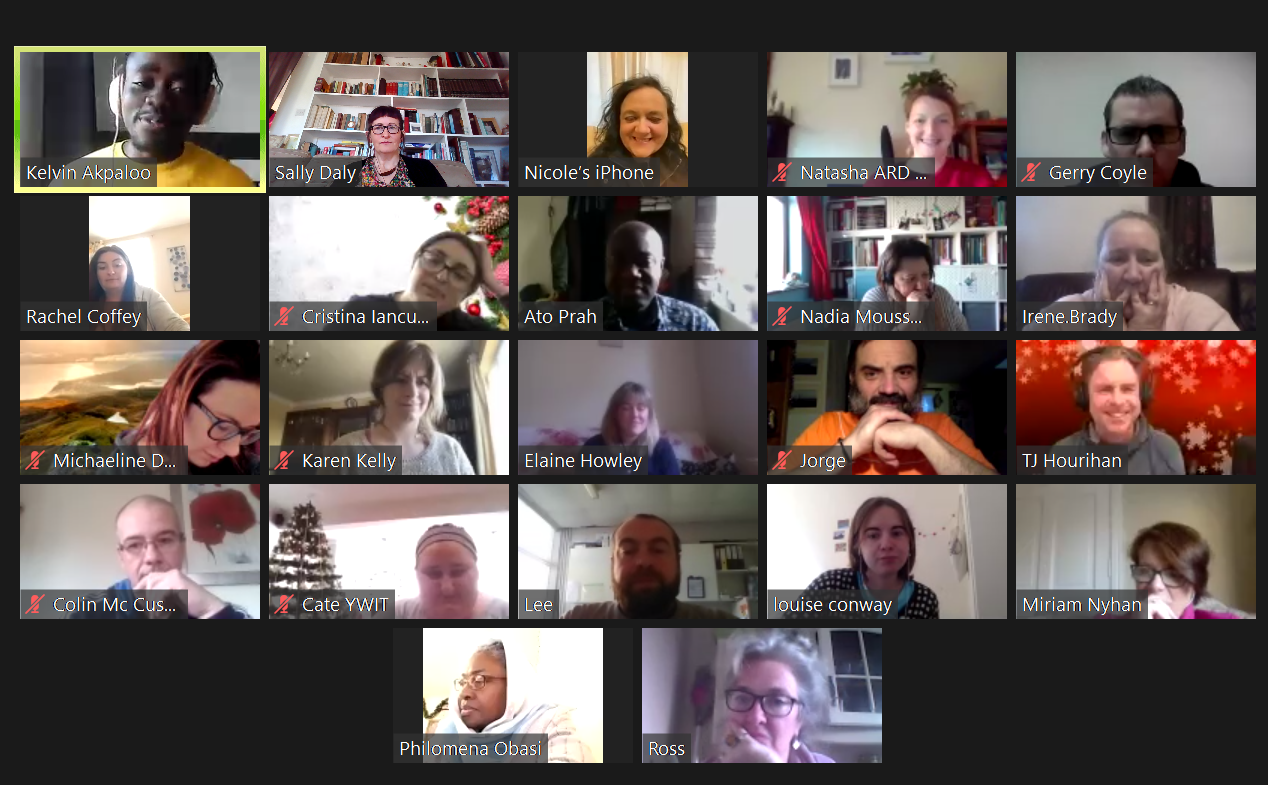National Youth Council of Ireland's NUI Certificate in Global Youth Work and Development Education
The NUI Certificate in Global Youth Work (GYW) and Development Education (DE) is a new Level 8 accredited programme for youth workers and youth educators, and is supported by a dynamic partnership between the National Youth Council of Ireland (NYCI) and the Department of Applied Social Studies at Maynooth University, as part of the Youth 2030 programme. Maynooth University is a member of the NYCI led Youth 2030 Consortium along with Trócaire and Concern.
The first cohort of learners completed the programme in May 2021. There was a wide range of backgrounds, experiences, and work contexts amongst the participants; however, all were united by a commitment to “changemaking” in their youth work practice. Due to Covid restrictions, students had very limited on campus learning
with the majority of classes taking place online. Working remotely was challenging, even frustrating at times, e.g., adapting to the online learning context and the loss of the in-person experience. However, it had many positive elements; it overcame geographic barriers and allowed participants to create synergies with other youth workers they might not usually work with, and to hear perspectives that they normally might not hear. It was also a space for solidarity and collective engagement during COVID 19. Despite the many challenges of the pandemic, along with the demands of juggling work and study, the programme had a 100% retention rate, with all 20 students completing the programme. This demonstrates that the programme successfully addressed the learning needs and interests of the participants.
A significant impact identified by participants was the building of solidarity and synergies with other youth workers and organisations. One participant noted that “collaborating with other youth work professionals on programme assignments, and receiving constructive criticism from peers, enabled ideation, process development and facilitation skills”. The solidarity element was especially important for participants who may have felt isolated in grappling with the very difficult issues being faced by the young people they work with. The programme enabled them to take a step back and contextualise local issues of poverty, injustice, and discrimination as broader global themes.
Another impact was the strengthening of the link between theory and practice. One of the programme assignments was to keep a structured reflective journal, through which participants were asked to engage with the literature and to demonstrate how theory was shaping and informing their real-life youth work practice. One participant stated that the programme “gave me the reassurance and confidence that my own skills and abilities in GYW practice are backed up by theory”, noting that her most significant change resulting from the programme was “the lighting of a passion for learning and curiosity”.
A third notable impact was an increased confidence to engage with policy. Many of the participants started the programme without much experience of, or engagement with, policy. However, by the time they reached the final programme assignment, which was a policy task, they spoke out with authoritative voices. One of the options for the assignment was to design a GYW policy for their organisation, and some of the people who took this option are now actually implementing their policies in their organisations. These policies reflect a firm belief that a GYW/DE approach will enable their whole organisation to respond better to the needs of the young people they work with. One participant noted that the policy assignment gave her the skills and confidence to apply a GYW/DE perspective right across her organisation’s vision, ethos, and mission.
For the 2020/21 cohort, the programme has ended, but the collective learning journey will continue. Participants have convened a community of practice to continue to build on the solidarity and collaboration with other youth workers, as well as a providing a collective means to shape policy responses and inform a broader sectoral commitment to bringing a global justice lens to youth work.
Images:
From One World Week 2019 featuring representatives from the following youth organisations who participated in the NUI Certificate in Global Youth Work and Development Education:
- Youth Work Ireland Tipperary, One World Week 2019 (main page)
- Building Blocks/Tallaght Community Arts, One World Week 2019 (picture 1)
- Cloyne Diocese Youth Service (picture 3)
Credit: Kyran O’Brien
And
- Human Rights through Spoken Word class on the Cert programme, 2020/21 (picture 2)
Credit: Sally Daly









